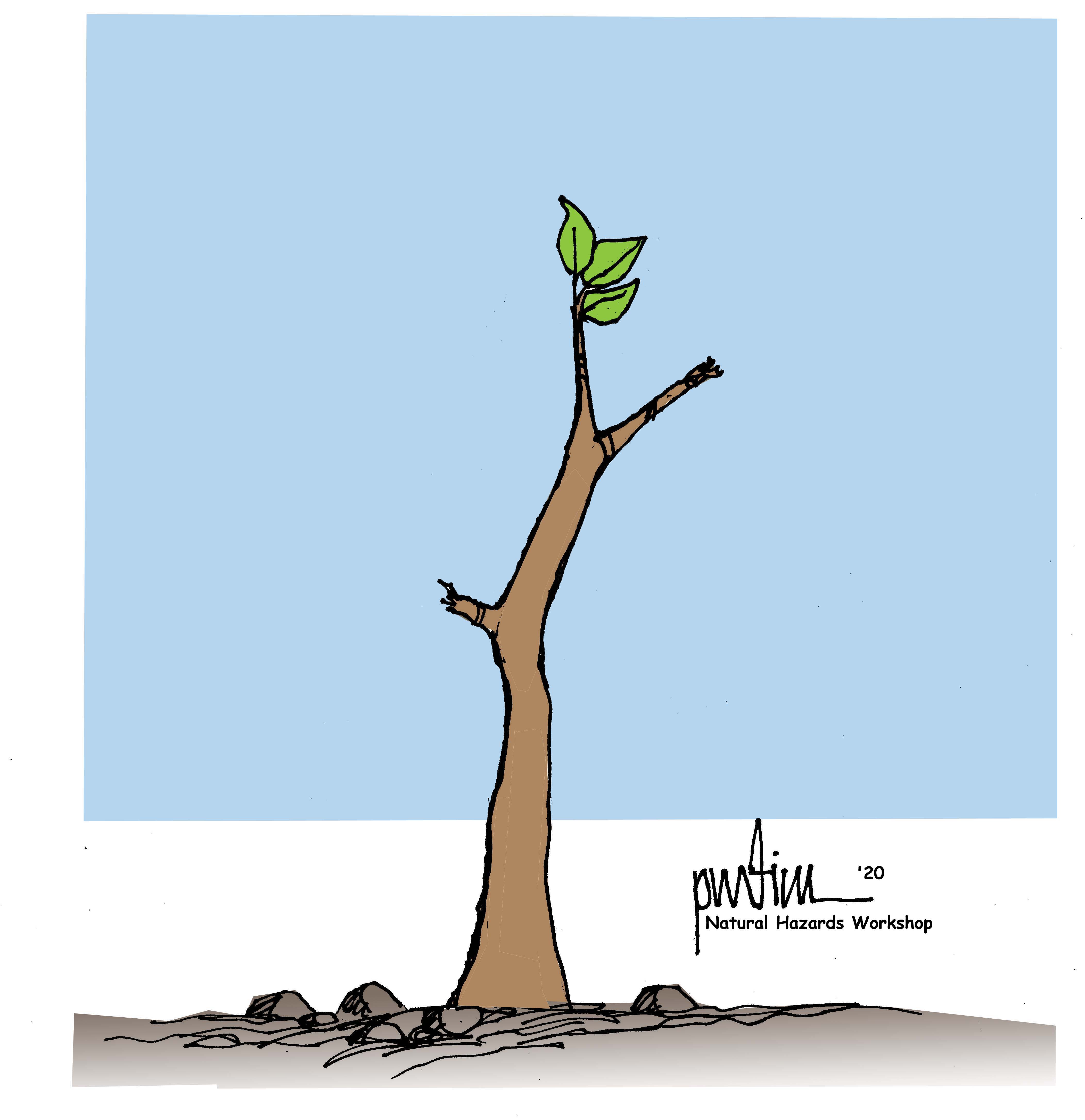45th Annual Natural Hazards Research and Applications Workshop
Sunday, July 12 through Wednesday, July 15, 2020
About the Workshop: Since 1975, the Natural Hazards Center has hosted the Annual Natural Hazards Research and Applications Workshop in Colorado. Today the Workshop brings together federal, state, and local mitigation and emergency management officials and planning professionals; representatives of nonprofit, private sector, and humanitarian organizations; hazards and disaster researchers; and others dedicated to alleviating the impacts of disasters.
Active Hope in an Era of Environmental Extremes
 Our Theme: This past year brought record-shattering disasters that caused great harm and suffering. From massive storms and floods to catastrophic wildfires and damaging earthquakes, millions of people—many of whom were already at the margins of society—have had their lives upended. Homes have been razed and entire communities have been wiped out. Precious cultural property has been destroyed and fragile ecosystems are under threat of total collapse. And now, the COVID-19 pandemic has killed hundreds of thousands of people globally.
Our Theme: This past year brought record-shattering disasters that caused great harm and suffering. From massive storms and floods to catastrophic wildfires and damaging earthquakes, millions of people—many of whom were already at the margins of society—have had their lives upended. Homes have been razed and entire communities have been wiped out. Precious cultural property has been destroyed and fragile ecosystems are under threat of total collapse. And now, the COVID-19 pandemic has killed hundreds of thousands of people globally.
How can we maintain hope in this era of environmental extremes? Can our community set an agenda for a resilient future, even while so many are stuck in seemingly endless cycles of disaster loss and disruption?
At the 45th Annual Natural Hazards Research and Applications Workshop, we will examine these and many other pressing questions by looking through the lens of active hope, a concept established in an inspiring book by the same name.
The old saying that “hope is not a plan” may be true, but when we become active in our hope, it can help us to design a different future. Active hope is different than being passively optimistic. Active hope is about recognizing our present conditions and establishing what we desire for ourselves, our communities, and the organizations where we work. Active hope is ethically and morally grounded, methodical, and carefully cultivated. It is about becoming fully engaged participants in creating and, importantly, enacting a vision for a more just and sustainable future.
Active hope can flourish when we take these three steps:
First, establish a clear view of reality. This is where scientists and practitioners gather and analyze data and evidence to characterize the threats and challenges that we face.
Next, use that clear view of the present circumstances to identify solutions we can envision—in what direction would we like progress to occur and what changes would we like to see made?
Finally, take active steps to move ourselves and those around us in the direction that we envision. These steps may involve sparking changes in individual attitudes, values, or behaviors. They could also result in more systemic transformations in our policies and institutions to help avert rising hazards losses and increase collective resilience.
Hope has not been adequately theorized or utilized in our field, which is understandably more attuned to documenting and understanding failures and losses. But members of this hazards and disaster community are visionary in so many ways—we are interested in imagining the possibilities of making things work by reducing risk.
At the 45th Annual Workshop, we invite contributions that will help establish a clear view of reality by assessing and reporting on the challenges of frontline communities, organizations, and other groups pushed to the brink by mounting environmental and social injustices. We also welcome contributions that envision an equitable and sustainable future and that include clear and actionable steps to respond to the great challenges of our time.
Please join us so that you can share your science, your practice, your wisdom, and your own active hope for the future. Working together, we can set an agenda and begin building momentum toward overcoming the harm and suffering caused by disasters.
Workshop Information: If you or your colleagues would like to receive email communications about the Workshop, please use this form to sign up.
You can also browse our past Workshops to see previous programs and speakers and to learn more about the Workshop format.